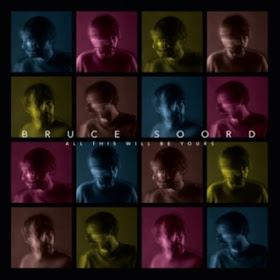Medicine Head
by Pete Clemons
Primarily a duo, they were Peter Hope-Evans, who played the Blues Harp and Jews Harp and vocalist, guitarist and bass drum player John Fiddler. Between them they released half a dozen albums and a dozen or so singles of which four reached the top 20.
During November 1969, and after playing heavily around the Midlands, Medicine Head signed their first ever recording contract with John Peel's Dandelion Records label. Legend has it that they met Peel after blagging their way into one of his events pretending to be the main act.
The band found themselves alongside the likes of Bridget St. John, Beau, Supersister, Stackwaddy, Bill Oddie and Gene Vincent.
Medicine Head's debut single 'His Guiding Hand' remains the favourite of, and in Peter Hope-Evans opinion, their most important song. Such was his love for it, the single was also kept within John Peel's 'most treasured' collection.
The pair released six singles and three albums on Dandelion with '(And The) Pictures in the Sky', released 1971, being the only real chart success for the label as it reached number 22. Soon after the release of 'Pictures', and for whatever reason, Peter Hope-Evans left.
During February 1971 at a Henry's Blues house club night, held at the Mercers Arms, Medicine Head were headlining. One time Yardbird, Keith Relf, was in attendance. Keith had produced some of the bands material and had now stepped into the band along with drummer John Davies.
Trev Teasdel was in the audience. During the evening the band called out, in hope, for a Jews Harp player and Trev's services were volunteered. Trev still has fond memories of his contribution to the band that night.
In the words of John Fiddler 'Without John Peel, Medicine Head may never have continued. They had already been turned down by Mike Vernon at his Blue Horizon label'.
John continues 'I think Mike Vernon did us a great service, John Peel was a true force of nature, and helped us so much'.
Hard to believe also that Medicine Head famously released an album called 'Dark Side of the Moon' a year or so before it was eclipsed by Pink Floyd's monster of the same name. But this album was recorded without Hope-Evans.
Medicine Head then signed for Polydor Records and Peter Hope-Evans returned to the fold. It was during the Polydor years that the hit singles returned. 'One and One is One' being the most successful as it peaked at number 3 during 1973. Other chart hits for Polydor were 'Rising Sun' which peaked at number 11 and 'Slip and Slide' which hit number 22.
Medicine Head became quite a name during their time but sadly and, like all good things, it was not to last. Their time together was short but very sweet.
Today, both Peter and John are still very much active. Peter with the Robbie McIntosh Band and John building a solo career.
.........
Comment from Trev Teasdel "Yes indeed Pete, I carried a small Jaws harp with me. I was writing lyrics and it was before I played guitar, so I used it on the 3 mile walk home from the Coventry Arts Umbrella Club, at 3am. I used it to help remember the rhythm and lyrics that I wrote on the way home. I'd never been on the stage at that point - it was my first time. Peter Hope-Evans was off ill at that gig and my female friends volunteered me so I had to get up! The roadie opened a box of huge Jew's Harps - talk about 'good vibrations', and told me to share the bass player's mic. Yes it was Keith Relf, I was a huge fan of the Yardbirds at school but he hadn't been announced and he looked different - beard and long hair rather than the yardbird moptop, so I had no idea. I got to watch him play bass up front as i twanged the harp. My mouth was getting dry so Keith let me drink some of his beer! We did a few numbers and then I think Keith changed over to harmonica. The roadie let me keep the harp and said "do you know who you shared a mic with?" Keith was producing them at that stage I think and starting out Renaissance.
A month or so before I wrote a song with Pete Waterman (long before he was famous) and the week the medicine head gig, I did my first poetry reading at the Warwick University Arts Festival to a packed hall of students, so it was an interesting time for me! I did try to book Medicine Head for the Umbrella Club but the roadie said we wouldn't be able to afford them! He was right, it was only a small town house venue with meagre funds from the arts council.!"








